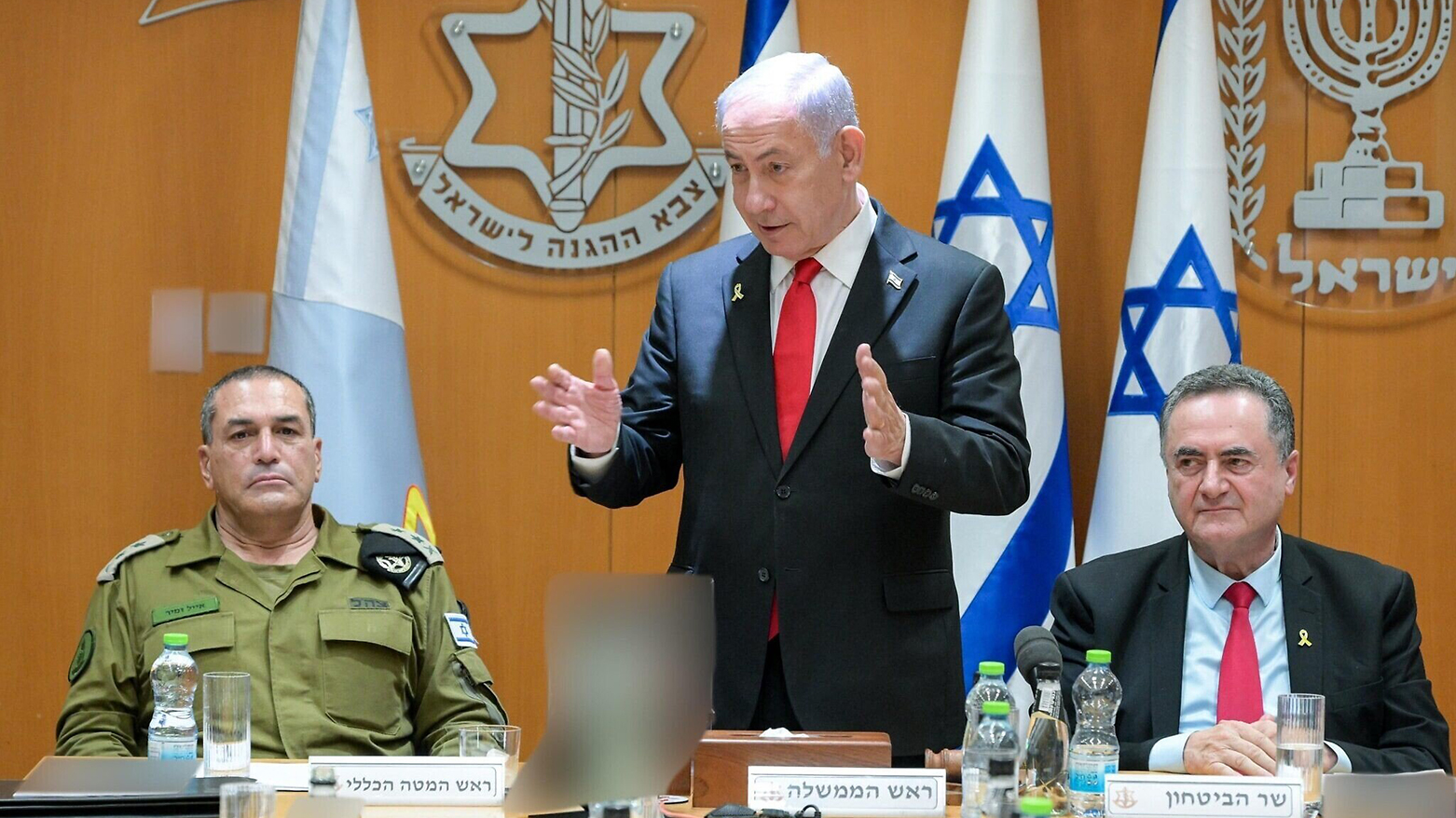Netanyahu Holds High-Level War Talks Amid Rift with IDF Chief Over Gaza Occupation
Netanyahu convenes war cabinet amid rift with IDF chief over Gaza occupation plan. PM pushes full conquest as military leaders resist, sparking coalition infighting. Defense minister warns army must follow orders while FM Sa'ar and opposition backs military's advisory role.

ERNIL (Kurdistan24) – Israeli Prime Minister Benjamin Netanyahu convened a high-level meeting with senior security officials on Tuesday to deliberate the next phase of the war in Gaza, amid intensifying tensions with IDF Chief of Staff Lt. Gen. Eyal Zamir, who reportedly opposes the full occupation of the enclave.
According to The Times of Israel, the meeting came after recent ceasefire and hostage negotiations with Hamas collapsed. Zamir was expected to present Netanyahu with multiple military options during the closed-door session. The discussion aimed to finalize a war strategy to be submitted to the broader Israeli cabinet later this week.
Attendees of Tuesday’s meeting included Defense Minister Israel Katz, Strategic Affairs Minister Ron Dermer, and Maj. Gen. Itzik Cohen, head of the IDF Operations Directorate. Notably absent were far-right ministers Itamar Ben Gvir and Bezalel Smotrich—both vocal proponents of a full Israeli military takeover of Gaza. Their exclusion, reported by Israel Hayom, underscores the deepening rift within Netanyahu’s coalition.
Netanyahu has reportedly informed ministers of his intent to secure cabinet approval for a full occupation of the Gaza Strip, a move that Zamir is said to oppose. This disagreement has triggered fierce backlash from Netanyahu’s allies, with some senior officials calling on the military chief to resign if he refuses to follow orders according to Times of Israel.
Defense Minister Katz appeared to issue subtle pressure on Zamir during a visit to an IDF post in the Gaza buffer zone, stating: “Once the political leadership makes the necessary decisions, the military echelon… will professionally implement the determined policy. My role… is to ensure that this will be the case, and that is what I will do.”
The controversy escalated further when National Security Minister Ben Gvir demanded that Zamir publicly commit to carrying out any government decision—including full conquest of Gaza. “The chief of staff must say clearly that he will fully carry out the orders of the political echelon,” Ben Gvir wrote on X.
נדרש מהרמטכ"ל להבהיר בקולו כי ימלא באופן מלא אחר הוראות הדרג המדיני, גם אם יוחלט על כיבוש והכרעה.
— איתמר בן גביר (@itamarbengvir) August 5, 2025
Zamir, however, received support from the opposition and from Foreign Minister Gideon Sa’ar, the sole government minister to back him publicly.
“The chief of staff is required to express his professional opinion clearly and unequivocally to the political echelon. I am convinced that he will do so,” Saar wrote on X. “He is not required to clarify the subordination of the military echelon to the government’s decisions.”
נדרש מהרמטכ״ל לבטא ללא כחל ושרק את עמדתו המקצועית בפני הדרג המדיני.
— Gideon Sa'ar | גדעון סער (@gidonsaar) August 5, 2025
אני משוכנע שכך הוא גם יעשה.
אין הוא נדרש להבהיר את כפיפות הדרג הצבאי להחלטות הממשלה משום שזה מובן מאליו, בודאי עבור מי ששרת את המדינה במדים במשך עשרות שנים.
Opposition Leader Yair Lapid condemned the public nature of the dispute on X, warning that such divisions could undermine the morale of IDF soldiers. “IDF soldiers should not think that a divided and conflicted leadership is leading them,” Lapid cautioned. He stressed that internal disagreements must remain confidential to preserve operational integrity and prevent chilling effects on military transparency.
היו לי ויכוחים עם הרמטכ"ל. גם כשר חוץ, גם כראש ממשלה. חלקם לא פשוטים. רק היה ברור לשנינו דבר אחד: הם צריכים להשאר בחדר הסגור. לוחמי צה"ל לא צריכים לחשוב שמובילה אותם הנהגה מפולגת ומסוכסכת, שהדרג המדיני אינו מתייחס בכבוד למפקד שלהם, שמוכרים אותם בשביל כותרת. יש לזה גם מחיר מבצעי.…
— יאיר לפיד - Yair Lapid (@yairlapid) August 5, 2025
As Netanyahu pushes forward with a contentious plan to escalate operations in Gaza, the widening divide between Israel’s political and military leadership continues to deepen, casting uncertainty over the government’s cohesion and the future trajectory of the war.